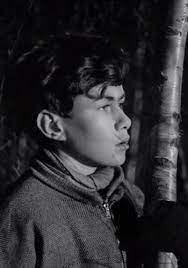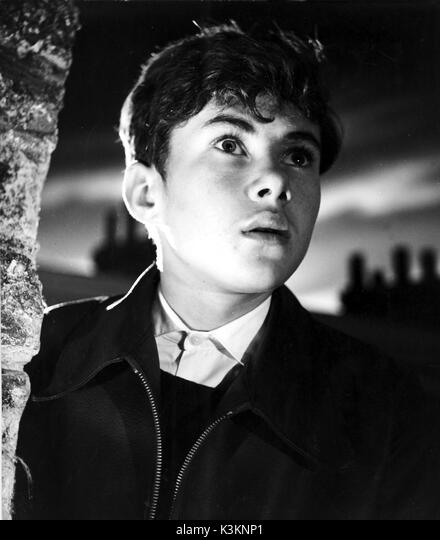

Obituary: HH Michael Brooke QC (1942–2014)
Michael Brooke was a long-standing member of the Society’s council who would in due course have been elected President of the Society, but sadly he died in the summer of 2014. He completed his active and distinguished legal career in 2004 sitting as a circuit judge for six years in Essex in what he called ‘‘the front line – violence, drugs and sex, laced with a little fraud’’. His conduct on this battlefield was good-humoured, calm, unruffled and humane, earning him the respect and affection of all who worked with him. Michael and three London-based fellow judges bound for Basildon regularly loaded their bicycles onto the early train at Fenchurch Street station. Dressed eccentrically in a garb that included items of yellow hi-vis gear, they were occasionally mistaken for a quartet of railway workers. ‘‘Where are the First Class carriages?’’ demanded a particularly superior lady solicitor on one occasion. (There were none.) It gave them wry pleasure when later she had to bow coming into their court. Michael Brooke would even bring out the best from those in the dock. Sentencing in drug cases often involves a rehabilitation order requiring the defendant to return to court once a month for a talk with (if possible) his sentencing judge so that his progress can be monitored and his rehabilitation encouraged. One youth, expecting to see Michael Brooke on his visit, almost broke down in tears when he learnt that he was not available and that he would be seeing someone else. But crime had played a very small role in his career before his appointment as a judge. As a barrister, his speciality was medical negligence work, notably high value complex claims. He also developed a speciality in cases concerning blood. In the HIV haemophiliac litigation in the late eighties and early nineties, he was the lead junior counsel in the team presenting the case for over 1000 people who had been treated by the NHS with transfusions of blood infected with HIV. The allegations concerned alleged Government mismanagement of the National Blood Transfusion Service. The law was against the haemophiliacs but Michael Brooke’s powerful presentation of the case had its effect. The judge, Sir Harry Ognall, took the unprecedented step of writing an open, hand-written note for the attention of everyone involved recommending a
settlement. ‘‘That the law must take its course’’, he wrote, ‘‘is not an attractive principle in the context of this case.’’ The government later made a £42 million grant to a trust set up for the benefit of the haemophiliacs and their families. Even more significant was his handling of the Hepatitis C litigation in 2000, another case concerning contaminated blood transfusions. By then a QC (he took silk in 1994) the case was advanced based on European and comparative law, something that Michael Brooke was perhaps uniquely able to do, having studied law in Paris and been admitted to the Paris bar in 1987. Brussels had set out to harmonise consumer law throughout the European Union with the Product Liability Directive in 1985, which the UK implemented as the Consumer Protection Act of 1987. Michael Brooke championed the Directive, and the case was notable for the comparative law analysis of how the Directive had been implemented in other European countries in order properly to understand how it should be applied in England. This was a ground-breaking approach at the time, but Mr Justice Burton’s judgment of the case endorsed the arguments and set the scene for other large multi-party cases that have adopted a similar legal approach, for example the oral contraceptive claims, the MMR litigation and many others. Michael Brooke also sat on the Medical Health Review Tribunal and the Parole Board. In 2003, he was elected a Bencher of Gray’s Inn. Michael Brooke’s early life was colourful. He was born in London in 1942, the only son of a theatrical couple, Reginald and Beryl Brooke. His father was a war-time BBC announcer (calling himself Michael Brooke). His mother acted with the stage name of Beryl Riggs and is remembered for her part in Just William productions. Michael Brooke seemed to be following the family calling, appearing on radio, television and in seven films as a boy actor. His role as Jack Hawkins’s eight-year-old son in the Michael Balcon film The Long Arm still gets an occasional airing on television. His family had a riverside garden by the Thames at Datchet and it was here that he spent a Swallows and Amazons childhood, messing about in boats. The river garden continued to be the scene of yearly summer parties, and both France and boats remained important elements of his life
Obituary
Michael Brooke was educated at the French Lyce´e in South Kensington, going on to study law at Edinburgh University, graduating in 1966 and being called to the Bar in England in 1968. At Edinburgh, he met Sophie Vautier from France. They later married and had three sons, Nicholas, Anthony and Benjamin. After the marriage ended, Sophie returned to Paris with the three boys. Needing a base in Paris in order to keep in touch with his children, Michael bought an exThames pleasure boat, had her shipped to Paris on a lorry and moored her in the Arsenal Marina by the Place de la Bastille, where he spent every other weekend with the boys. It is typical of his sense of fun that he named her Foudroyant, after a French 80-gun ship of the line captured by the British in 1758 and put into service with the Royal Navy against the French. Michael Brooke not only loved France, he was passionate about fostering Anglo-French relations. In 1999, he set up the London-Paris Bar Exchange, together with a French lawyer, Maitre Katherine Lisfranc, and a Francophile colleague, Edwin Glasgow CBE, QC. This allows English barristers to go to Paris and French ones to come to London for a
four-week stay to learn about and experience the two quite different legal systems. The climax is a mock trial in which the barristers are required to perform in the foreign tongue and the foreign system. For this work, he was awarded the Legion d’Honneur at the French Embassy in London in 2012. In 1996, he married Mireille Colahan, who had also been a pupil at the Lyce´e, although they claimed not to have noticed each other. They cruised the French waterways every summer in Foudroyant, until she was replaced in 2003 by the far more formidable 101-yearold steel hulled Dutch ketch Ganesha, in which they cruised around the Baltic. Michael Brooke had planned to continue sailing, realising his childhood ambitions, throughout his retirement. But in December 2012, he was diagnosed with lung cancer. He died on 8 June 2014, aged just 72. He is survived by his three sons and their five children and by Mireille, two step daughters and four step grandchildren.

